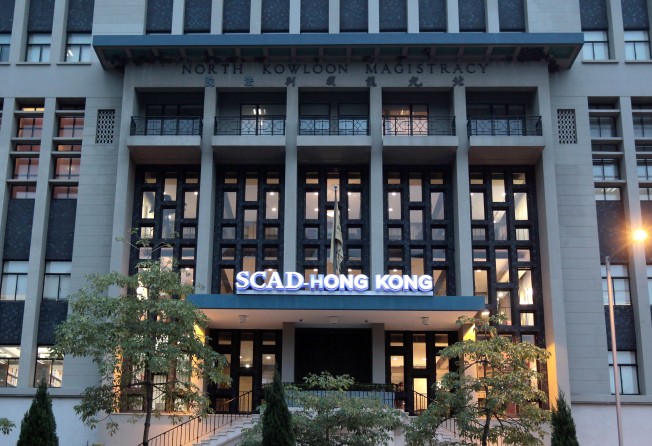Letters to the Editor, June 14, 2017

High-quality graduates in great demand
Creative industries are essential to Hong Kong’s economy, and have been identified as a primary force for driving the region’s future development.
The need for experts in these fields should mean creative career preparation is a priority for Hong Kong leaders in higher education.
Savannah College of Art and Design provides a road map for Hong Kong students to become these experts and secure lucrative opportunities in creative professions. We produce some of the most highly skilled graduates in these fields.
At our most recent career fair, we hosted more employers than we had students graduating. In fact, 100 per cent of our graduating class in Hong Kong last year were employed, pursuing higher education or both within 10 months of graduating.
SCAD is a shining example of the importance of a university education for future employment. With a rising number of opportunities across Hong Kong’s fast-growing creative economy, the college’s diverse degree programmes and specialisations, including game design, advertising, and fashion, make the university well positioned to produce the next generation of creative talent that will design our future.
An investment in higher education will set up students for a bright future, and our programmes meet the highest professional and academic standards to optimise their preparation for success.
Recently, the quality of programmes at some selffunded educational operations in Hong Kong has come into question. SCAD Hong Kong meets or exceeds all the requirements of University Grants Committee-funded schools according to the standards set by our shared accrediting agency, the Hong Kong Council for Accreditation of Academic and Vocational Qualifications.
In fact, SCAD programmes were given credentials to qualifications framework (QF) level 5 (for bachelor of fine arts) and QF level 6 (for master of arts and master of fine arts) with zero preconditions due to the proven, outstanding quality of our degree programmes.
Allowing more people access to further education is a positive step for any economy, paving the way for greater prosperity in Asia-Pacific markets.
John Paul Rowan, CEO, SCAD Hong Kong
Smokers at busy bus stops were so selfish
On Monday afternoon, the Hong Kong Observatory announced that typhoon signal No 8 would be hoisted by 5.30pm. People left their offices and rushed home and so there were long queues at bus stops.
I was waiting for a bus on Hennessy Road, which has clusters of bus stops for numerous routes.
People formed multiple queues. The pavements were very crowded. Some people started smoking, much to the chagrin of others, who could not escape the second-hand smoke as they were queuing. Nor did they have legal grounds to challenge these individuals as they were not in designated no-smoking areas.
They had to suffer passive smoking while waiting for their buses. By their actions, these smokers showed themselves to be extremely selfish and inconsiderate. Their behaviour was reprehensible.
The situation clearly demonstrated the need for the government to make smoking illegal in crowded urban areas for the sake of public health.
Francis Lo, North Point
Hongkongers value freedom of the press
I believe it is important to maintain press freedom in Hong Kong.
Having a free press ensures that the work of the government is being closely monitored.
This allows citizens to stay informed and enables them to freely express their dissatisfaction with the administration, if, for example, they feel it is not doing enough to help the most disadvantaged citizens.
Freedom of expression and speech are important to Hongkongers. We cannot imagine living here and not having these rights. I would not want to live in a country like North Korea, where nobody has the right to speak out and freely express their views.
A society like Hong Kong, which respects free speech, enables residents to keep in touch with the rest of the world.
However, in open societies and with the growth of the internet and so many different social media platforms, we are now seeing the growth of what has been described as fake news.
We all need to be aware of this trend and not take all news at face value. It is important to look closely and critically at all news sources.
Another reason press freedom is important in Hong Kong is that it helps us get accurate news reports about what is happening on the mainland, including stories which reflect badly on China.
It is as important to cover bad news and not just focus on good news. This enables a country to learn from its mistakes, and make the necessary improvements.
Gigi Wan Yan-tung, Yau Yat Chuen
Any funding delay can hurt poor citizens
In April, the Audit Commission criticised the Social Welfare Department for the delays granting some grant applications for social projects.
It is supposed to process major grants within nine months and minor grants within four, but the commission said this was not always happening. The auditor found it was taking between two and 7.5 years to process 82 major grant applications and one to 3.6 years to deal with minor bids.
I do hope the situation has improved since then. Many of these programmes are designed to help the neediest citizens in our society.
If the department delays getting funds to different social initiatives, then it is often the disadvantaged in our society who will not get the help they really need.
I believe the government must ensure that, in future, the department meets its targets so that there are no delays when it comes to providing funds for these social projects, which can make such a difference to people’s lives.
Jeana Cheng Ka-yi, Kwai Chung